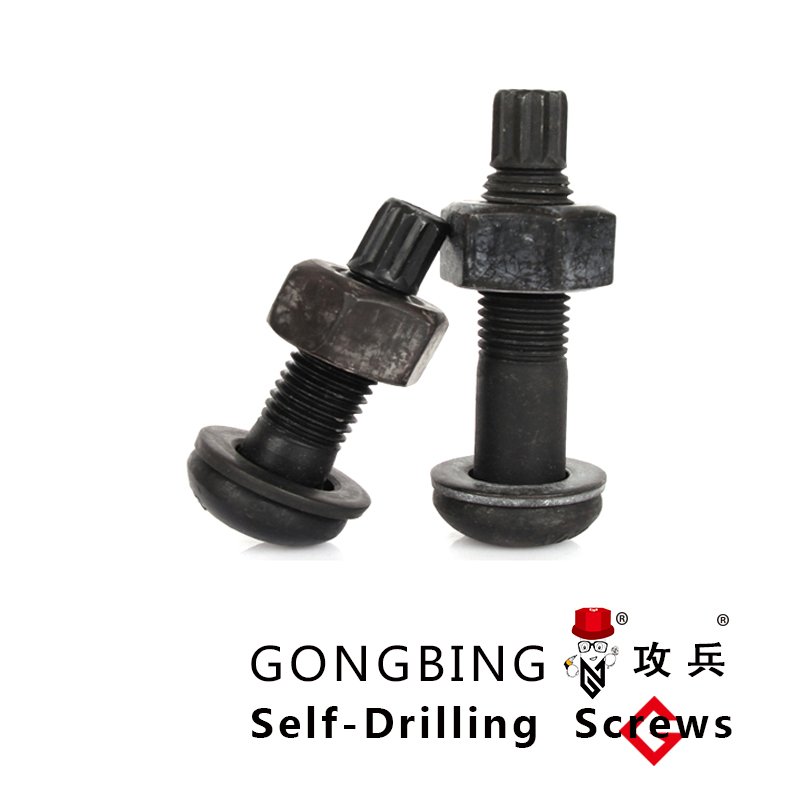Durable Chipboard Fasteners for Secure Assembly
Understanding Chipboard Fasteners The Unsung Heroes of Woodworking
When embarking on a woodworking project, whether it be building furniture, creating cabinets, or crafting intricate designs, the choice of fasteners is often overshadowed by the wood itself. However, chipboard fasteners play an essential role in ensuring the durability and stability of your creations. This article delves into the various types of chipboard fasteners, their applications, and their significance in woodworking.
What Are Chipboard Fasteners?
Chipboard fasteners, also known as chipboard screws, are specially designed fastening devices that are primarily used in conjunction with particle board, MDF (medium-density fiberboard), and plywood. These fasteners are made from high-quality steel, often coated to resist corrosion, making them ideal for both indoor and outdoor projects.
Unlike standard screws, chipboard screws feature a unique thread design that allows for optimal grip in low-density materials. Their coarse threads help them to bite deeply into the chipboard, ensuring a strong hold that minimizes the risk of splitting or loosening over time.
Types of Chipboard Fasteners
1. Chipboard Screws The most common type, chipboard screws are versatile and come in various lengths and diameters. They are characterized by their sharp points, which allow for easy penetration into the material without pre-drilling.
2. Confirmation Screws These are specialized fasteners used primarily for butt joints. They often come with a self-countersinking design that allows them to sit flush with the surface of the board.
3. Wood Dowels Although not traditional fasteners, wood dowels are often used in conjunction with chipboard screws to provide additional strength to joints. They are inserted into pre-drilled holes and glued in place, creating a solid bond.
chipboard fasteners

4. Cam Lock Fasteners Ideal for flat-pack furniture, cam lock fasteners provide a quick assembly solution. They use a combination of screws and nuts to create a very strong connection between two boards.
Advantages of Using Chipboard Fasteners
One of the primary benefits of using chipboard fasteners is their ability to create strong and durable connections in less dense wood products. The specific design of these fasteners minimizes damage to the materials they're used with, promoting longevity in your projects.
Moreover, the ease of use associated with chipboard screws makes them a favorite among DIY enthusiasts and professional woodworkers alike. Their ability to self-tap means less time spent on preparation, allowing for more time spent on the creative aspects of woodworking.
Applications
Chipboard fasteners are ubiquitous in furniture assembly, cabinetry, and construction projects involving engineered wood products. They are commonly found in the assembly of ready-to-assemble (RTA) furniture, where their efficiency and strength facilitate quick assembly and disassembly.
Conclusion
In the realm of woodworking, chipboard fasteners might not often receive the spotlight; however, their importance cannot be overstated. Providing strength, stability, and ease of use, these fasteners are truly the unsung heroes of any woodworking project. By understanding and utilizing the right types of chipboard fasteners, you can elevate the quality and durability of your creations, ensuring that they stand the test of time. Whether you are a seasoned woodworker or a beginner, incorporating chipboard fasteners into your toolkit is crucial for the success of your woodworking endeavors.
-
Weatherproof Plastic Expansion Anchors for OutdoorNewsJun.06,2025
-
Sustainability in the Supply Chain: Eco-Friendly TEK Screws ProductionNewsJun.06,2025
-
Load-Bearing Capacity of External Insulation FixingsNewsJun.06,2025
-
Double Head Bolts: Enhancing Efficiency in Industrial MachineryNewsJun.06,2025
-
Corrosion Resistance in Chipboard Screws: Coatings for Wholesale DurabilityNewsJun.06,2025
-
Butterfly Toggle Bolts : Enhancing Structural ResilienceNewsJun.06,2025
